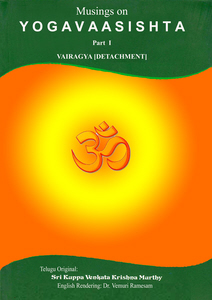It is a misconception to think that the process of Self-inquiry “leads” the seeker to the “Self.” It is not a positive process of movement like travel – starting from a station ‘A’ and arriving at the destination ‘B,’ keeping me, myself and my luggage intact safe and secure. One cannot look for novel experiences enroute like on a train journey nor does one hope to devour the scenic beauty along the path. Nor “I,” the inquirer, will find the Self at the end to shake hands or get a hug.
Self-inquiry is actually a process of becoming totally naked. Yes, Absolutely naked – not even retaining the modest covering that we dearly call as our body. It’s a negative process, a process of being disembodied. One has to lose not only whatever one thinks that s/he possesses (the entire bundle that can be put under ‘mine’ including objects, people, relationships etc.), but also whatever s/he thinks s/he is (all that defines what a ‘me’ is).
The two keywords that play a role in the process of Self-inquiry are: Continue reading

